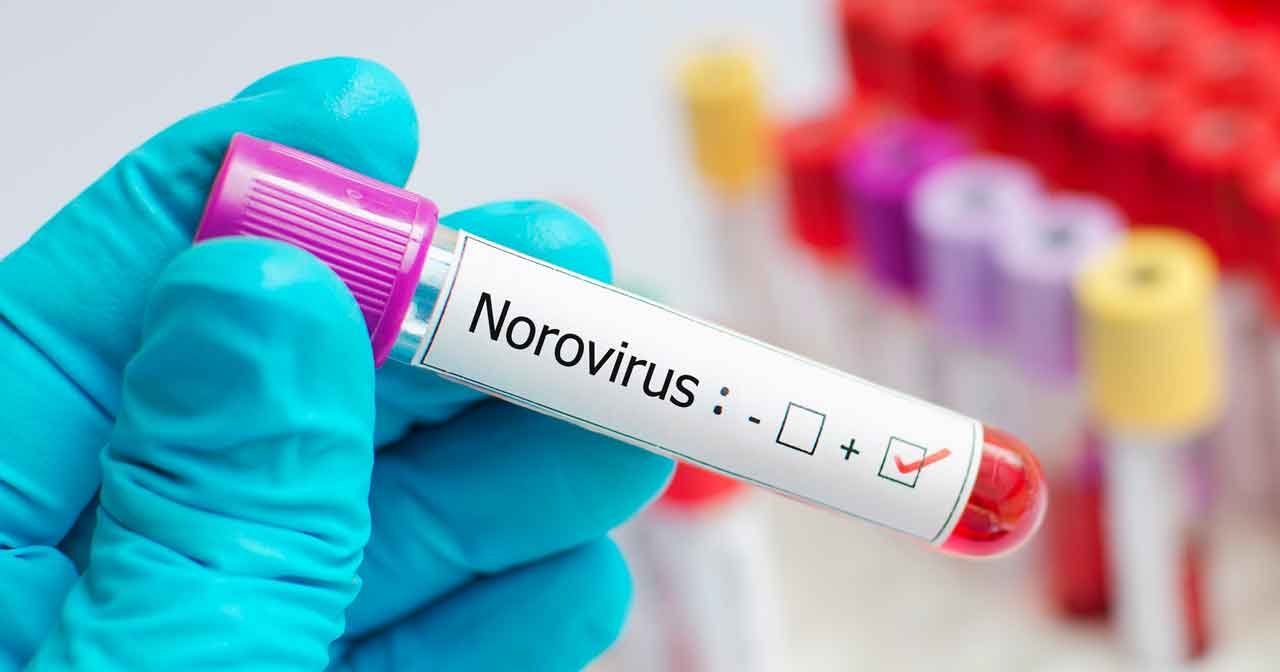How Long Does Norovirus Last?

If you suffer from vomiting and diarrhea caused by norovirus, you’ll want to know what norovirus is — and how long does norovirus last. Learn more here.
You’ve probably seen headlines about passengers on cruise ships who came down with a miserable stomach sickness. There were seven of these incidents in 2017 alone, involving hundreds of people who became ill with norovirus on cruises, according to the Centers for Disease Control and Prevention (CDC).
While news stories involving unfortunate people sickened while on a holiday cruise get the most publicity, outbreaks of norovirus actually happen frequently throughout the U.S.
YOU MIGHT ALSO LIKE: What Is the Norovirus?
Norovirus, often called a “stomach bug,” can make you feel just plain awful. It causes inflammation of the stomach or intestines, or both, leading to vomiting, diarrhea, and sometimes body aches, fever, and dehydration. If you are one of the unlucky people who catch this gastrointestinal illness and you’re suffering from the unpleasant symptoms, you’ll likely be anxious to know how long does norovirus last.
How long does norovirus last after you are infected?
Norovirus spreads rapidly in closed places like schools, daycare centers, and nursing homes, as well as the well-publicized outbreaks on cruise ships. It also occurs in restaurants, especially when buffets may be contaminated with the virus. Infected food workers who touch raw fruits and vegetables with their bare hands before serving these foods are frequently the cause of outbreaks.
Norovirus is an extremely contagious virus that can infect people of all ages. You can catch norovirus from an infected person, by drinking or eating contaminated food or beverages, or by touching contaminated surfaces, the CDC explains.
But you won’t know you are infected immediately. If you are, you’ll begin to experience symptoms of norovirus in about 12 to 48 hours. The most common symptoms include nausea, diarrhea, stomach pain, and vomiting. You may also develop a fever and headache.
The good news is that most people with norovirus begin to feel better in one to three days. However, exactly how long norovirus lasts depends on other factors.
For example, when you have norovirus, you may feel extremely ill and be sick to your stomach several times a day. This can cause dehydration, especially in young children, older adults, and people with other health conditions, and result in a more prolonged illness. Symptoms of dehydration include a dry mouth and throat, feeling dizzy when you stand up, and decreased urination. Children with dehydration may be unusually sleepy and fussy and cry without producing tears, too.
If you have norovirus and don’t feel better after a few days, the CDC advises contacting your doctor. You should also seek medical attention if you experience severe dehydration, prolonged vomiting, bloody stools, or abdominal pain.
How long is norovirus contagious?
You are most contagious when you are sick with norovirus illness and during the first few days after you recover from norovirus illness. To avoid spreading the infection, it’s important to understand how long norovirus does last in your body.
Norovirus can be found in your stool (feces) even before you are aware you have the illness — and the virus can stay in your stool for 2 weeks or more after you feel better.
You may continue to shed virus in your feces for up to two weeks after you have fully recovered from norovirus. In addition, viral shedding (which means you are still contagious) may last up to several months if you have an underlying health condition, according to the CDC.
To keep others from catching norovirus, wash your hands thoroughly with soap and water, especially after changing diapers and using the bathroom, and always before you handle, prepare, or eat food. Don’t prepare any food for others while you are sick with norovirus and for at least two days after all your symptoms have gone away, the CDC urges. It’s also important to clean and disinfect any surfaces that could be contaminated with norovirus.
Updated:
March 26, 2020
Reviewed By:
Janet O’Dell, RN